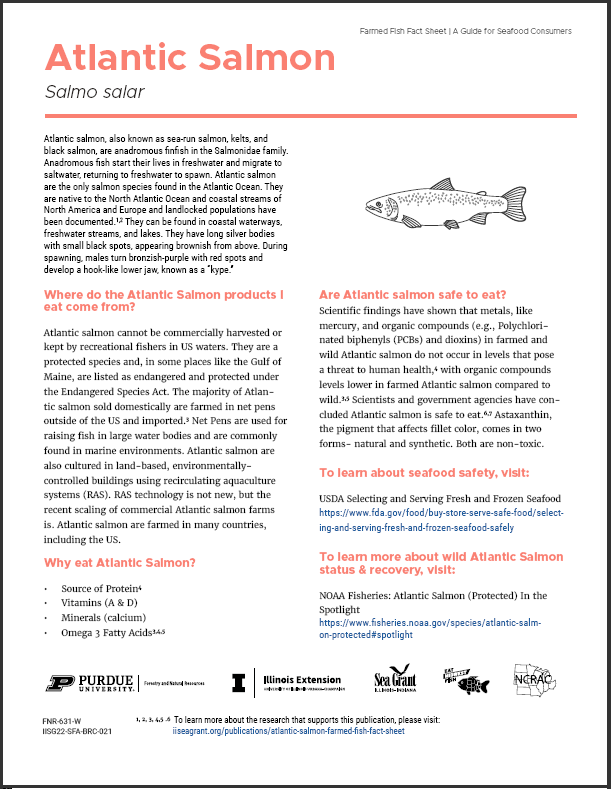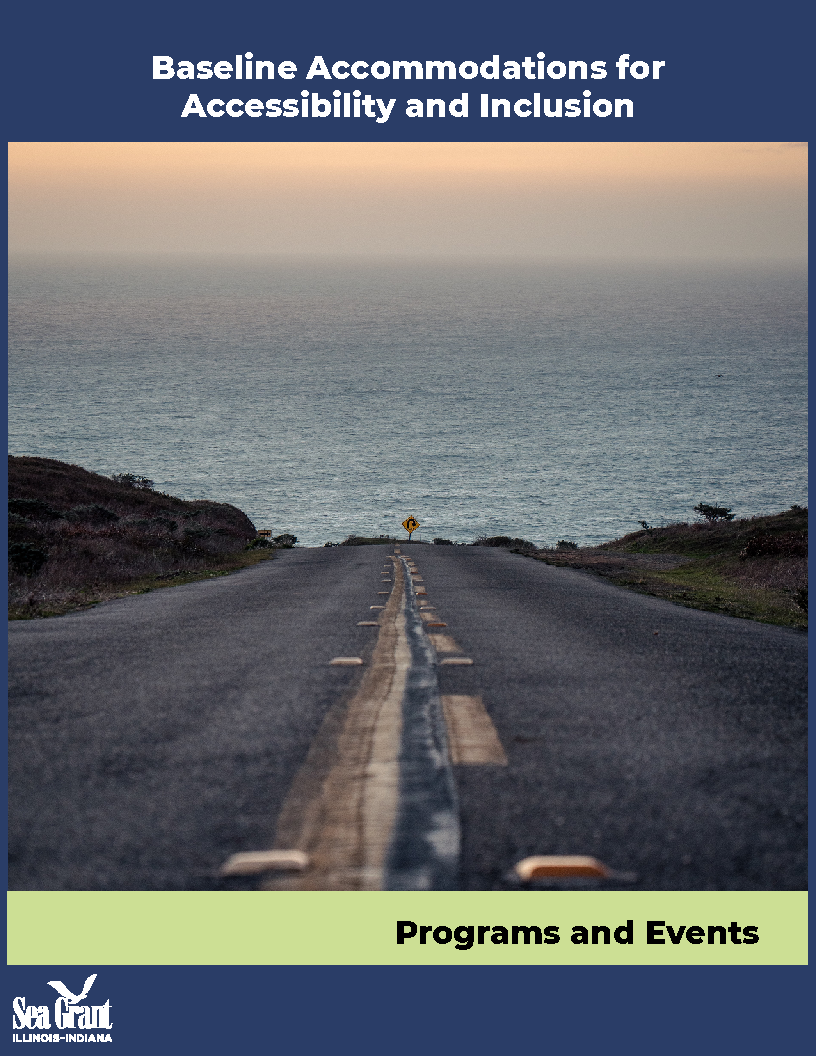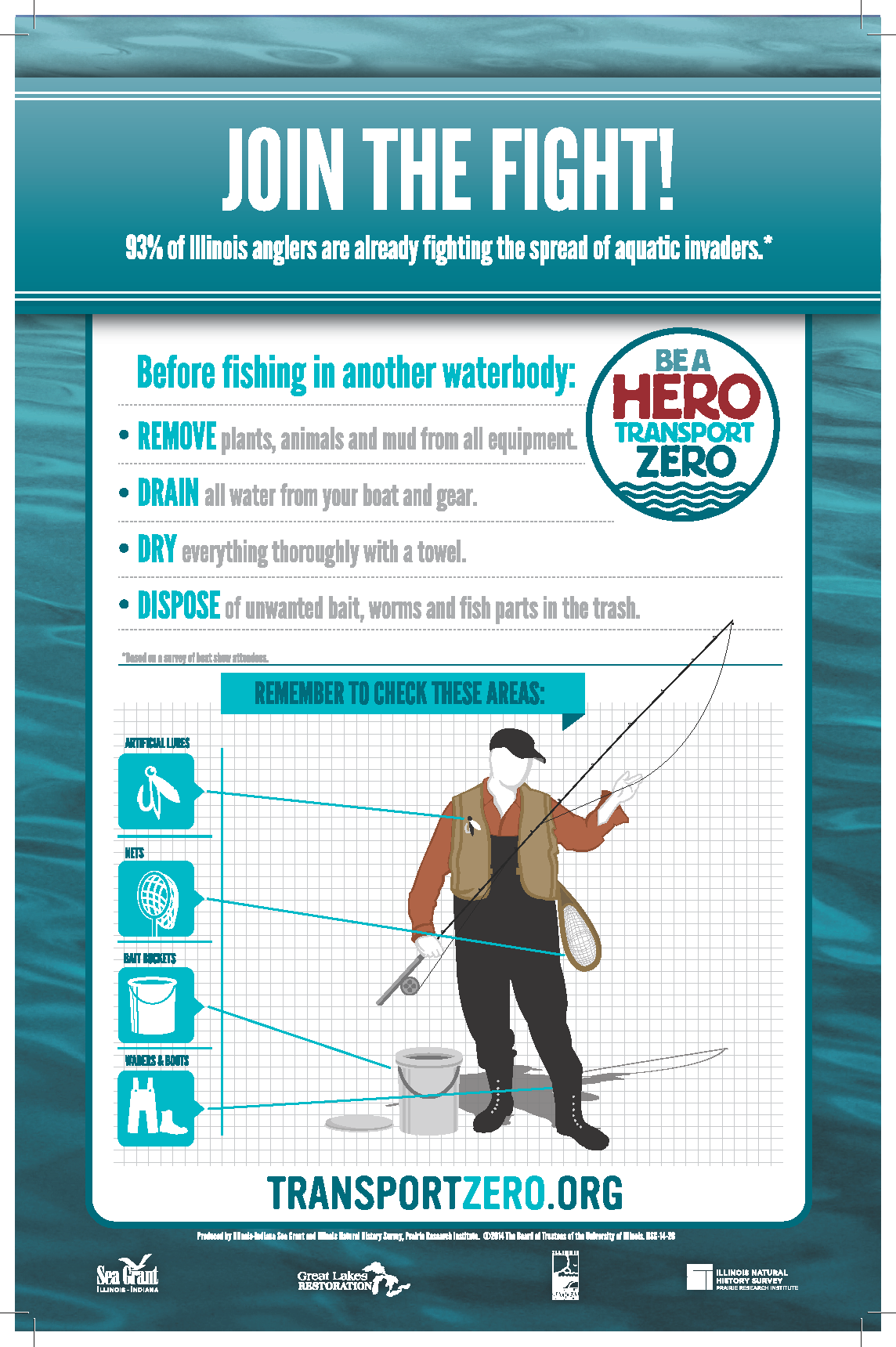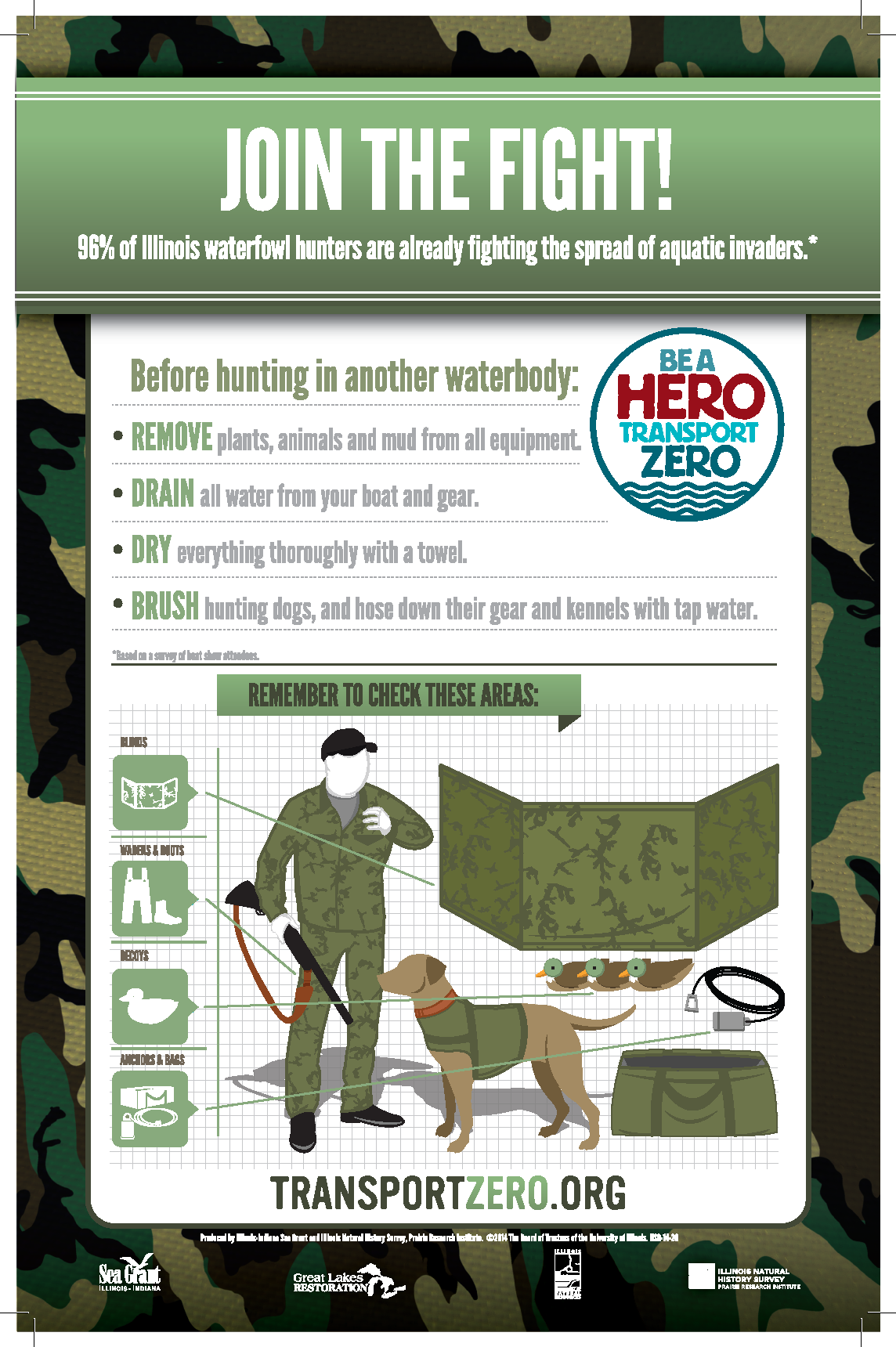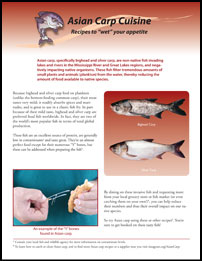
File Size: 2.22 MB
Year: 2010
Asian carp, specifically bighead and silver carp, are non-native fish invading lakes and rivers in the Mississippi River and Great Lakes regions, and negatively impacting native organisms. These fish filter tremendous amounts of small plants and animals (plankton) from the water, thereby reducing the amount of food available to native species. One way to help the Asian carp problem is to eat the fish. This factsheet includes several recipes for Asian carp.

